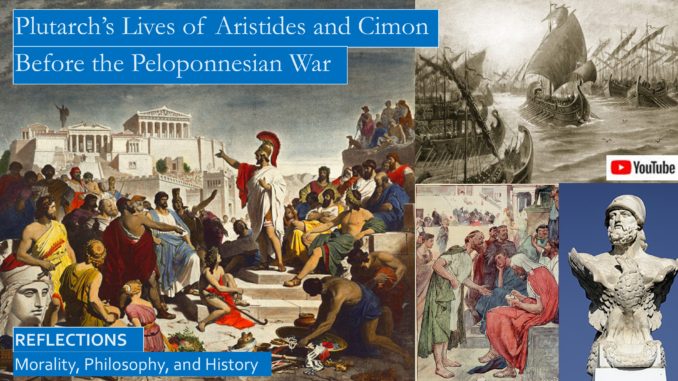
During the Greco-Persian Wars, although the hoplites and trireme rowers were instrumental in driving the Persians out of Greece, the actual war effort, including the command at the final hoplite Battle of Platea that decimated the Persian army, was directed by the Spartans, who also led the initial naval and hoplite battles in Ionia Greece after King Xerxes fled back to Persia.
Why did the Ionian Greeks reject the Spartan leadership under the Pausanius, and why did they plead for Athens to take up the liberation of the Asian Greek colonies from the Persians, leading to the founding of the Delian League? Simply put, the Delian allies were impressed by both the military acumen and integrity of the two Athenian generals Aristides the Just, and Cimon. Also, the Spartans embarrassed Cimon, who sought to reconcile Athens and Sparta, which contributed to the outbreak of the Peloponnesian Wars.
YouTube video for this blog: https://youtu.be/QabwtFANCDc
YouTube script with more book links: https://www.slideshare.net/BruceStrom1/plutarch-lives-of-aristides-and-cimon-formation-of-the-delian-league-after-the-grecopersian-wars
Link to view complete series of blogs on the Peloponnesian Wars:
https://seekingvirtueandwisdom.com/category/peloponnesian-wars/
Link to view complete series of videos on the Peloponnesian Wars:
https://www.youtube.com/watch?v=szi7-9QQWI0&list=PLJVlY2bjK8lg2pivnGN3m13VI8YstKs0T
NOBLE LIVES OF PLUTARCH
Plutarch says we should paint those noble lives who have positively shaped our culture in as good a light as possible, without distorting the past. As Plutarch says, “When painters are faced with a slight blemish in the beautiful and pleasing figures they portray, we do not expect them either to omit it altogether, or to stress it. By the same token, since we cannot paint a man’s life as entirely free from shortcomings and blemishes, we should supply the truth, confident in its veracity, when dealing with the good aspects of our subject’s life. However, when flaws and defects which, prompted by emotion or by political necessity, taint his actions, we should regard them as lapses from virtue rather than as vices. We should not, then, be eager to overemphasize character flaws,” as nobody “is absolutely good or unequivocally virtuous.”[1] We can also use this approach to interpret the actions of the people we deal with very day at work or in politics.
Since we prefer studying history to learn moral lessons, we will look at the noble lives of these two Greek heroes as told by Plutarch. Aristides was born into moderate wealth, and his family became poorer due to his honesty in his time of office, while Cimon was an aristocrat. While Aristides was a rival of Themistocles, Cimon was a rival to Pericles, in the next generation of leaders. Since Aristides was born and died about two decades before Cimon, Aristides gets our first look.
Aristides, moderate wealth, rival to Themistocles, born 530 BC, died 468 BC.
Cimon, wealthy aristocrat, rival to Pericles, born 510 BC, died 450 BC.
Greco-Persian Wars end, Battle of Platea, after Xerxes flees back to Persia, 478 BC
ARISTIDES THE JUST
Will Durant tells us that “Aristides was in life and manners a Spartan at Athens. His quiet, staid character, his modest simplicity and honor won him the title of the Aristides the Just.” After the Battle of Marathon, where the Athenian hoplites charged and intimidated the lightly armed Persian infantry, Aristides was in charge of the captured Persian camp. While the hoplites double-timed it to Athens to confront the Persian Army in their ships, preventing a sacking of their city he ensured that none of the vast wealth of the Persian booty was plundered.[2]
Plutarch tells us how both his rivalry with Themistocles and his honest character were evident from the time of his youth. “Aristides was the friend and supporter of Cleisthenes, who reformed the government after the expulsion of the tyrants. Aristides emulated and admired Lycurgus,” lawgiver of Sparta, “the Lacedaemonians, and above all politicians, adhered to the aristocratic principles of government. Themistocles was his adversary on the side of the populace. Some say that as boys they were together from their infancy.” They often tussled with each other in “their words and actions, serious and playful.” Themistocles was “adventurous and subtle, engaging readily and eagerly in everything, but Aristides was of a staid and settled temper, intent on the exercise of justice, not admitting any degree of falsity, indecorum, or trickery, no, not even at play.”[3]
Plutarch states, “Aristides walked alone on his own path in politics, being unwilling to go along with his associates in ill-doing,” irritating them with his honesty. Though he observed that corrupt officials were encouraged by their friends, Aristides was cautious, he believed “that the integrity of his words and actions was the only right security for a good citizen.”
In the ups and downs of “public affairs, the constancy Aristides showed was admirable, not being elated with honors, showing tranquility in adversity; holding the opinion that he ought to offer himself to the service of his country,” “not expecting any reward, not riches, not even of glory itself.”[4] “Aristides was a most determined champion for justice, not only against feelings of friendship and favor, but wrath and malice.”
Once he’s in charge of the public revenue, Aristides revealed that some of the preceding officers had been engaging in corruption, especially Themistocles, who, according to a comic poet:
“Well known he was an able man to be,
But with his fingers apt to be too free.”[5]
“Aristides was fortunate to be beloved for his surname, Aristides the Just, but at length he was envied, especially when Themistocles spread a rumor that” Aristides “had destroyed the courts and was secretly setting up a monarchy.” “The high spirit of the people was confident due to their late victory,” “disliking those who had more than common fame and reputation.” “Coming together from all parts of the city, they banished Aristides by ostracism, pretending their jealousy of his reputation was really the fear of tyranny.”[6]
Ostracism was part of the democratic reforms to help prevent the rise of tyrants. Each year the Assembly voted if there would be an ostracism that year, and if affirmative, a month later the citizens would vote for someone, and if anyone had over six thousand votes, they were ostracized, or forced into exile from Athens for ten years. They kept their property, they kept their citizenship, and were welcome after the ten years, or earlier if the ostracism was lifted.
Professors love to repeat this story from Plutarch that illustrates the justness of Aristides, “There was an illiterate clownish figure who gave Aristides his pottery shard, or scrap, supposing him a common citizen, and begged him to write Aristides upon it. Being surprised, he asked if Aristides had ever injured him, and he said, ‘Not at all, and neither do I know the man, but I am tired of hearing him everywhere called the Just.’ Aristides, hearing this, made no reply, but returned the shard with his own name inscribed on it.”[7]
ROLE OF ARISTIDES IN GRECO-PERSIAN WARS
Herodotus tells us the role Aristides played in the Greco-Persian Wars. Three years after his ostracism, when Xerxes was marching towards Attica, the Athenians decreed the return of the banished Aristides, he was able to participate in the Battle of Marathon. Aristides put himself at the service of Themistocles as a counselor during the war.[8] Before the Battle of Salamis, Aristides advised Themistocles that the Persian fleet surrounded the Greek triremes. When the battle was joined, he led the hoplites that crossed the bay to kill the Persians waiting on the beaches.[9]
After the Persian naval defeat at the Battle of Salamis, after King Xerxes fled back to Persia with much of the army, the Persian general Mardonius sent an arrogant embassy to the Athenians demanding surrender. Aristides replied, “As long as the sun retains the same course, so shall the citizens of Athens wage war with the Persians, for the country which they have wasted, and the temples that they have profaned and burnt.”[10]
The next year, when the armies of Persia were maneuvering, trying to find an advantageous time to attack the Greeks, Alexander, king of the Macedonians, who preceded Alexander the Great by many generations, rode into camp and said this to Aristides:
“Tomorrow Mardonius will attack, urged, not by any hope of success of courage, but by shortages of food and supplies; since, indeed the prophets” warned him that “the sacrifices and oracles are unfavorable” for victory. His army is despondent and anxious.” Aristides shared this information with the general Pausanias, and the Greeks prepared for the Battle of Plataea.[11]
The Spartans organized an orderly retreat since they were running out of food and water. There was a gap in the line because one Spartan commander refused to withdraw his Spartan regiment. Plutarch tells us the drama of the moment, “The Spartan Amompharetus, a brave and daring man, had long desired to fight, resenting the lingering and delays, calling the moving of the camp a mere running away, protested that he would not desert his post, but would remain with his company to face the charge of the Persian general Mardonius. When the Spartan general Pausanius told him that they should honor the common vote and determination of the Greeks, Amompharetus lifted a great stone and flung it at Pausanius’ feet, then said, ‘By this token, do I vote for the battle, nor do I have any concern with the cowardly consultation and decrees of other men.’”[12]
Usually, such foolish insubordination invites disaster, but history was kinder in this instance, the Persians were enticed to attack, and the Greeks quickly overcame them. Plutarch tells us, “The Persians, holding their wicker-shields before them, shot their arrows among the Lacedaemonians. But they, staying together in a phalanx, falling upon the Persian enemies, forced the shields out of their hands, and striking with their pikes at the breasts and faces of the Persians, overthrew many of them,” “grabbing the enemy spears with their bare hands, breaking many of them.”[13] In the succeeding melee, the Greeks broke into the palisades of the Persian camp and massacred most of the Persian soldiers.
CHILDHOOD OF CIMON, AND HIS ENTRY IN PUBLIC LIFE
There are passing references to young Cimon in Herodotus, but we hear of his exploits in the years after the Greco-Persian Wars, when he was one of the Athenian generals elected to help free the Greek colonies in Asia Minor to throw off Persian rule.
Plutarch tells us about the childhood of Cimon:
“His father, Miltiades, died in prison,” “and the young Cimon was left completely alone, along with his sister.” “At first he had a poor reputation in Athens and was known, to his discredit, for his lack of self-control and for his heavy drinking and for taking after his grandfather Cimon, who was so stupid, apparently, that he was called, ‘the Dunce.’” Then Plutarch has these unsettling comments on how some contemporaries said he married and committed incest with his sister, in part because she could not find a husband due to her poverty. But then Plutarch says that “otherwise, Cimon’s character was both admirable and noble, he was as brave as Miltiades and intelligent as Themistocles, and more honest than either of them.”[14]
“Cimon’s entry into public life was welcomed by the common people, who were fed up with Themistocles. They found his even temper and straightforwardness accommodating and congenial, so they promoted him to the highest political offices and positions.”[15]
Will Durant says that “Cimon had most of the virtues that Themistocles lacked, but none of the subtlety that ability must depend upon for political success. Unhappy amid the intrigues of the city, he secured command of the fleet, and consolidated the liberties of Greece by his victory against the Persians at the Eurymedon. Returning to Athens in glory, he at once lost his popularity by advising a reconciliation with Sparta.”[16]
PAUSANIUS IS DISCREDITED, ATHENIANS ASSUME LEADERSHIP
After the Greeks obliterated the Persian Army at the Battle of Platea, with some stragglers fleeing back to Persia, the Greeks took the battle to the Persians, freeing the former Greek colonies in the islands and coasts of Asia Minor, today Turkey. Just as the Spartans led the Greeks to victory in the Greco-Persian Wars, so initially the Spartans under general Pausanius led the Greeks when initially battling the Persians victoriously. But Pausanius fell victim to the old Greek warrior sin of hubris, of snatching defeat from the jaws of victory through arrogance that offends the gods.
Cimon then brought the battle to the Persians allied with the Thracians in the town of Eion in Thrace, in northern Greece, Cimon’s defeat of the Persians won fertile and attractive lands for the Athenians to colonize. This pleased the Athenians, for up to now “their resistance to the Persians prevented disaster, but under Cimon the tables were turned: now they made enemy territory the theater of war, wreaking havoc, acquired extra land and colonies.”[17]
Plutarch tells us how both Cimon and Aristides showed they were not as imperious as Pausanius and were quicker to listen to the concerns of the allies. For instance, Cimon was an Athenian general in these battles against Persia, Plutarch tells us that “during these campaigns, Cimon’s troops were wonderfully disciplined and far more highly motivated than any of the other contingents. But at the time when Pausanius began to write letters to the Persian king betraying Greece, he also began to treat the allied forces with willful cruelty and violence. Cimon listened sympathetically to the grievances of Pausanius’ victims and dealt with them in a kindly fashion, and as a result, and by the strength of his reasoning and his character rather than by force of arms, he gradually assumed the command of Greece, in the sense that most of the allies sided with him and Aristides, since they found Pausanias’ cruelty and arrogance unbearable.”[18]
Likewise, Aristides was also respected by the allies. “Being sent in joint commission with Cimon to the war, Aristides noticed that Pausanius and the other Spartan captains had offended their confederate Greeks by their imperiousness and harshness. But Aristides and Cimon were gentle and considerate with their confederates, showing courtesy and even-handedness.”
“Thus, Cimon stole away the chief command from the Lacedaemonians, not by weapons, ships, or horses, but by equity and wise policy. The Athenians were endeared to the Greeks by the justice of Aristides and by Cimon’s moderation, while the tyranny and selfishness of Pausanias rendered the Athenians more desirable.”[19]
The last straw incident shaming Pausanius concerned a Byzantine aristocrat named Cleonice whom he lured into the camp. One night she knocked over a lampstand, and a panicked Pausanius stabbed her to death, thinking she was an intruder, or at least that is the story Plutarch heard. Her ghost haunted him continually, repeating this epic line: “Draw closer to justice: violence spells certain doom for men,” which sounds more like a Delphic oracle than a ghost. The story goes that he begged the ghost for forgiveness, but she would only relent when he arrived at Sparta, where his days were numbered.[20]
“The consequence was that the sea captains and generals of the Greeks” of Asia Minor “came to Aristides and requested him to be their general,” so they could “relinquish the Spartans and come over to the Athenians.”
“The magnanimity of the Lacedaemonians was wonderful. When they perceived that their generals were becoming corrupted by the greatness of their authority, they voluntarily laid down the chief command,” pulled out of the wars, “choosing rather to have citizens of moderation and consistent in the observance of their customers” be their leaders, “than to possess the dominion of all Greece.”[21]
ARISTIDES AS GENERAL, VIRTUES OF ARISTIDES
“Even during the command of the Lacedaemonians, the Greeks paid a certain contribution towards the maintenance of the war;” each city desiring to be assessed fairly, “they desired Aristides of the Athenians, and gave him command surveying their country and revenue to assess everyone according to their ability and what they were worth.”[22]
The states of “Greece were submitting their affairs to the sole management of Aristides, beginning poor, becoming poorer, laying the tax not only without corruption and injustice, but to the satisfaction and convenience of all. For as the ancients celebrated the age of Saturn, so the confederates of Athens celebrate the taxation of Aristides, calling it the happy time of Greece, and that more especially, as the sum was in a short time doubled, and afterwards trebled.” It was increased again first by Pericles, then by the demagogues following him.
“Themistocles once said that he thought the highest virtue of a general was to understand and predict the measures the enemy would take. To this Aristides replied, ‘This, indeed, Themistocles, is simply necessary, but the excellent thing in a general is to keep his hands from taking money.’”
Aristides made all the people of Greece swear to keep the league, and he took the oath in the name of the Athenians, flinging wedges of red-hot iron into the sea, after curses against those who chose to break their vow” before the time those irons float on the surface of the sea.
“Aristides was, in his own private affairs, and those of his fellow citizens, rigorously honest, but in public matters he often acted in accordance with his country’s policy, which demanded sometimes not a little injustice.”[23]
Aristides died about a decade after the Persian infantry is decimated at the Battle of Platea, the year after King Xerxes flees back to Persia. He lived to see the ostracism of his rival Themistocles, but before the rise of Pericles. Some say he died in Athens; some say he died while on campaign in the Black Sea. He died so poor his family could not pay for his funeral.
CIMON AS GENERAL, VIRTUES OF CIMON
In the ancient world, although the wealthy were rarely taxed, often they paid for many festivals and functions that in modern times would be paid by the state. For example, not only did he open his orchards to the common people, as did Pericles, but he also looked after the welfare of many poorer citizens. Plutarch notes that Cimon “arranged for a meal every day at his house, not a fancy meal, to which anyone could come, if he was poor, and have a nourishing without any bother, so he could concentrate on his public duties.” A group of Cimon and his friends “carried around huge quantities of cash and would approach poor people of the better type and quietly drop coins into their hand.” His well-dressed friends were also known to “swap clothes with an elderly man whose clothes were shabby.”[24]
Plutarch repeats Thucydides when he said that the Delian allies becoming subject to the Athenians was their own fault, when, after the Persians were eliminated as a threat to the Greeks, they chose to pay tribute to Athens in place of ships and soldiers. The other Athenian commanders wanted to pressure the Allies to continue contributing ships and soldiers, causing resentment, but Cimon relented, increasing their tribute instead. “Before long, Cimon used the money and wages provided by the Allies to make the Athenians the masters of those who paid him. Thus, the Athenians were always at sea and constantly under arms,” “becoming seasoned and trained fighters. So that allies acquired the habit of fearing and currying favor with the Athenians, gradually becoming tribute-paying subjects rather than allies, and lost their freedom.”[25]
Plutarch states that “as for the Great King of Persia himself, no one did more to humble him and curb his pride than Cimon.” He readied a vast fleet of three hundred triremes, especially widened to transport a larger contingent of hoplites on several decks. “The Persian ships ran for cover in a river,” but then “sailed out their fleet of 350 or 600 ships, depending on which source you believe, to meet the Athenians. At sea, the Persian performance did not measure up, so they immediately turned towards dry land.” The Persians beached their ships and ran for the protection of the army lines. After a heated battle, the Athenians prevailed, a slaughter began, and the Athenians captured a vast Persian booty that helped build the walls of Athens. Under the peace signed by the Persian King, he agreed to always stay a day’s march from his Greek coast.[26]
Plutarch states that Cimon was always pro-Spartan, he even named one of his twin sons Lacedaemonius, and the Spartans reciprocated, one reason why they tolerated the rise of Athenian power was out of respect for Cimon. “Cimon was the Athenian’s main negotiator when there was business to conduct with other Greeks, because of his ability to deal courteously with the allies and remain on good terms with the Lacedaemonians.”
This friendship was put to test when a severe earthquake struck Sparta. Plutarch tells us, “Gaping holes appeared in many places where the land had collapsed, the shocks broke off the peaks of Mount Taygetus, and the city itself was completely destroyed, with only five houses left standing, and all the rest razed by the earthquake.” The earthquake killed many young men exercising in a gymnasium that collapsed on top of them. King Archidamus immediately called up the citizen army, standing down hordes of helots that rushed in to take advantage of the chaos to revolt. Some scholars speculate that the population of Sparta never recovered from this demographic disaster.
A delegation was sent to Athens, Cimon encouraged the Athenians they should assist the Spartans, arguing that they “should not allow Greece to become lame, or Athens to lose its yoke-fellow.” But after the arrival of Cimon at the head of an Athenian army to assist in putting down the helot revolt, Plutarch tells us, “the Spartans become nervous about the courage and brilliance the Athenians displayed.”
Plutarch continues, “the Spartans dismissed Cimon and the Athenians on the grounds they were fomenting revolution. The Athenians were the only allies treated this way, and when the army arrived home, the Athenians were furious,” and soon voted to ostracize Cimon. Will Durant says that the oligarchic party was so demoralized by his fall that for two generations the government remained in the hands of the democrats.”
During his exile, Cimon and his armed retinue joined the Athenian hoplites when they pursued the Spartans on their way home from an attack on Delphi. This convinced the Athenians to revoke their ostracism of Cimon. Soon afterwards, Cimon negotiated a peace between Athens and Sparta.
Cimon resumed his command of Athenian forces, and at the time of the Egyptian campaign, Cimon lost his life during the battle at Citium on the island of Cyprus. Plutarch closes by noting, “Cimon’s death spelled the end of the days of glorious exploits by Greek commanders against the Persians. Afterwards, under the influence of demagogues and warmongers, the Greeks were turned against one another and, with no one to keep them apart, they clashed in a series of wars which gave Persia time to recover, and which sapped Greece’s strength to an incalculable degree.”[27]
[1] Plutarch, Greek Lives, Cimon, translated by Robin Waterfield ((New York: Oxford University Press, 2008, 1998, originally 100+ AD), pp. 119-120.
[2] Will Durant, The Story of Civilization, Volume 2, Life of Greece (New York: Simon and Schuster, 1966, 1939), p. 236.
[3] Plutarch, Plutarch’s Lives, Volume 1, Aristides, Dryden Translation (New York: The Modern Library, 2001, 1992, originally 100+ AD), p. 435.
[4] Plutarch, Plutarch’s Lives, Volume 1, Aristides, p. 436.
[5] Plutarch, Plutarch’s Lives, Volume 1, Aristides, p. 437.
[6] Plutarch, Plutarch’s Lives, Volume 1, Aristides, p. 439.
[7] Plutarch, Plutarch’s Lives, Volume 1, Aristides, p. 440.
[8] Plutarch, Plutarch’s Lives, Volume 1, Aristides, p. 440.
[9] Herodotus, The Histories, translated by Aubrey De Selincourt (London, New York: Penguin Classics, 2003, 1954, originally Fifth Century BC), Book 8.79 and 8.95, p. 57 and p. 532.
[10] Plutarch, Plutarch’s Lives, Volume 1, Aristides, p. 442.
[11] Plutarch, Plutarch’s Lives, Volume 1, Aristides, p. 446.
[12] Plutarch, Plutarch’s Lives, Volume 1, Aristides, pp. 447-448.
[13] Plutarch, Plutarch’s Lives, Volume 1, Aristides, p. 449.
[14] Plutarch, Greek Lives, Cimon, pp. 121-122.
[15] Plutarch, Greek Lives, Cimon, p. 122.
[16] Will Durant, Life of Greece, p. 247.
[17] Plutarch, Greek Lives, Cimon, pp. 124-125.
[18] Plutarch, Greek Lives, Cimon, p. 123.
[19] Plutarch, Plutarch’s Lives, Volume 1, Aristides, pp. 452-453.
[20] Plutarch, Greek Lives, Cimon, pp. 123-124.
[21] Plutarch, Plutarch’s Lives, Volume 1, Aristides, p. 453.
[22] Plutarch, Plutarch’s Lives, Volume 1, Aristides, p. 453.
[23] Plutarch, Plutarch’s Lives, Volume 1, Aristides, p. 454.
[24] Plutarch, Greek Lives, Cimon, p. 127.
[25] Plutarch, Greek Lives, Cimon, p. 129.
[26] Plutarch, Greek Lives, Cimon, pp. 130-132.
[27] Plutarch, Greek Lives, Cimon, pp. 133-138, and Will Durant, Life of Greece, p. 247.

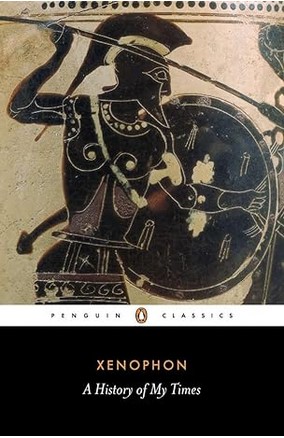
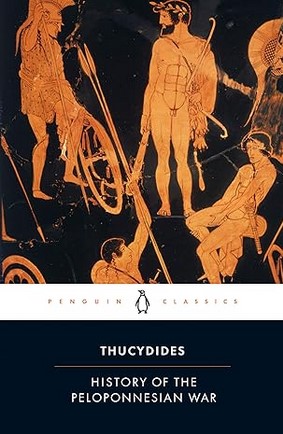
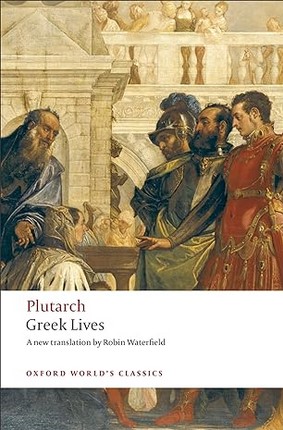
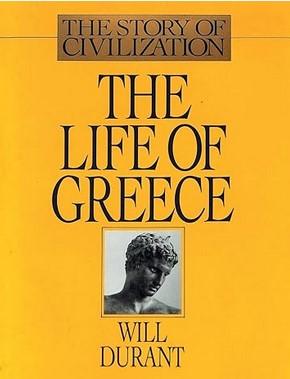
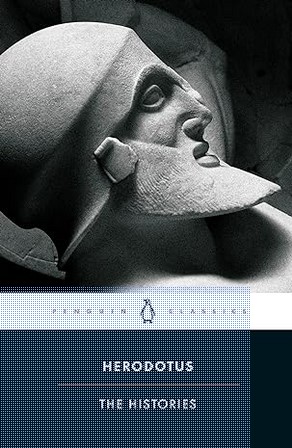
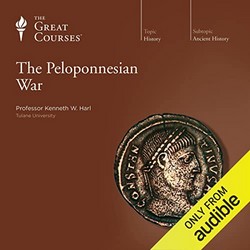
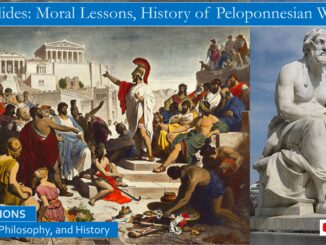
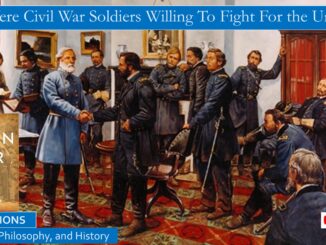
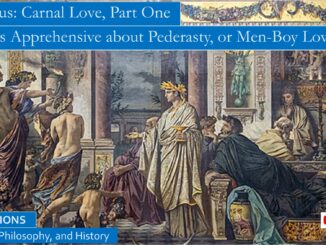
1 Trackback / Pingback